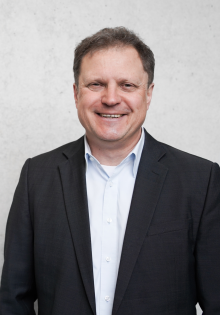Time is running out. In order for universities – and students in particular – to get back to “normal,” they need planning security. Currently, this can only be achieved by ensuring as much vaccine coverage as possible for members of the university, especially the students.
In their most recent meeting on June 15, the UA11+ universities – Bielefeld, Greifswald, TU Kaiserslautern, Magdeburg, Paderborn, Passau, Potsdam, Saarland University, Siegen, Trier, Ulm and Wuppertal – addressed the concern that for the past year and a half, there has been very little in-person learning. They also discussed plans for the upcoming winter semester. The alliance’s discussion was based on a deep conviction that, in addition to their research and education mission, universities also have a social responsibility – for their employees as well as for their students. This responsibility includes not only social and existential duties, but also the community and cultural life of the university. Universities can continue to structure their research and instruction based on regulations; however, this approach does not allow for the possibility of a university as a social space where participative practice and dialogue culture are developed well and sustainably through collaboration and negotiation. That is why the UA11+ strongly supports allowing students to return to the social space that universities also offer. Otherwise, the academic system risks losing an entire generation of students. Without the option to gain skills through lively discourse, students cannot appropriately develop their potential. This would also mean losing sustainability and innovation in our society.
For the upcoming winter semester, despite the conditions of the ongoing pandemic, it is therefore essential to create an extensive range of in-person offerings in order to normalize university operations as much as possible. Precisely because the pandemic is likely to remain with us through the winter semester, framework conditions need to be established now to facilitate responsible in-person activities at the universities this winter. Because as much as the member universities of the UA11+ hope to welcome instructors and students back to their respective campuses in full force soon for the abovementioned reasons, they are equally dependent on active support from politicians at every level to help them succeed. This applies on the one hand to the issue of vaccines, and on the other to the current “coronavirus precautions.” The two are closely related.
Recent figures show that students, who are still mostly unvaccinated, are increasingly becoming a vulnerable group. The percentage of students among total infections in the population is currently rising dramatically, even without accounting for the coming impact of the Delta variant in Germany. Politicians’ vaccine promises and calls for vaccinations are not enough. Students are having trouble getting appointments with their usual doctors (GPs), and the institutions that could potentially partner with universities – clinics, vaccination centres and company medical services – do not have enough vaccine doses to launch a “university vaccination campaign.”
Still, that is exactly what the UA11+ is demanding! Politicians need to explicitly call for such a university vaccination campaign so that students can reliably appeal to the cooperating institutions. At the same time, an adequate supply of vaccines needs to be provided for the duration of the campaign – without offloading the cost onto universities.
Effective, timely planning for an in-person semester can only take place if it is possible to count on a high level of fully vaccinated students by the start of the semester. Only then can we eliminate or at least relax the social distancing rules in particular. One thing is clear: if the current distancing rules remain in place for lecture halls, only about a quarter of the students can return, strictly mathematically speaking, despite the best intentions of university administrators.
Time is running out: In order for universities – and students in particular – to get back to “normal,” they need planning security. That includes the current application deadlines for prospective students, apartment hunting, and much more. Currently, this much-needed planning security can only be achieved by providing extensive vaccine coverage for members of the university, especially students. It is the only way that mandatory in-person teaching can take place responsibly. Testing alone is not a practical long-term option at scale, due to the associated cost for universities, which simply function differently than schools or large companies. Furthermore, offering hybrid remote and in-person instruction is not reasonable in the long term.
The students have had to make many compromises. They have shown solidarity, and they have given up many of the normal opportunities and age-specific experiences that are associated with this phase of life – things that are important for their professional as well as personal development. Now it is time to give something back to them, by offering reliable vaccinations so their studies and classes can take place in person again this winter semester.


